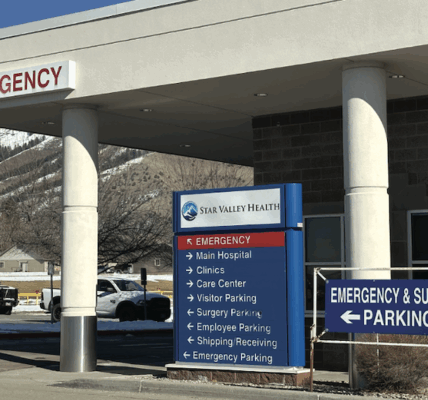
By Jasmine Hall
Wyoming Tribune Eagle
Via- Wyoming News Exchange
CHEYENNE — State representatives advanced a bill extending postpartum Medicaid coverage for low-income mothers on Monday afternoon, with just a few hours left in the day before it would have died.
House Bill 4 has been a topic of speculation since it was approved by the House Labor, Health and Social Services Committee nearly two weeks ago. Lawmakers and stakeholders hoping to see it heard on the floor were wary it would be introduced, as House Majority Floor Leader Chip Neiman, R-Hulett, voiced his concern about the legislation.
Neiman held back the sole bill expanding Medicaid eligibility, HB 80, and let it die as the Monday deadline to consider bills in the Committee of the Whole of their house of origin passed. He told the Wyoming Tribune Eagle in a previous interview that he was unsure of the benefits of Medicaid postpartum extension, as well, but there was a possibility it would be heard before the cutoff.
Rep. Steve Harshman, R-Casper, even pulled his amendment to the budget bill Friday to extend the program for mothers up to a year after birth, because he said leadership assured him it would be voted on Monday.
The agreement was kept as the bill was called up after lunch. It was among the last 73 bills and joint resolutions left on general file in the House chamber and followed a long debate and passage of a bill that would restrict abortions further in the state.
“I am pro-life, and I do support this bill,” said freshman Rep. J.T. Larson, R-Rock Springs. “The question is, do we or do we not support mothers who need this help? How can we say we don’t want government involved in postpartum care, but we want government involved in abortion prohibition? In my opinion, you can’t have it both ways.”
Discussing the pros and cons of postpartum coverage didn’t take up as much time as the “Life is a Human Right Act,” but more than an hour was still dedicated to hearing arguments.
Legislators in opposition voiced their concerns that the program would continue to grow in costs and maintenance of effort, women might not be taken off the program in the allotted amount of time, or there would be unintended consequences to the social framework of society.
Rep. Jeremy Haroldson, R-Wheatland, said he officiates marriages as a pastor, and there were five couples in the last six years that halted their marriage plans due to pregnancy. He said they would have been disqualified from coverage, and said it was an example of “in the idea of creating solutions, we can create problems, too.”
He also said it was a matter of personal responsibility.
“I understand we want to take care of kids. We want to take care of moms, no one’s saying otherwise on that. We have programs in place that are doing that,” he said. “But this is just going to continue to instigate this mentality that, ‘Hey, you know, what? We’ll let the state take the bill.’”
Other lawmakers spoke out against the bill, saying there are other organizations to support parents, or that women need help with diapers and formula, not health care services months after birth.
“Being pro-life does not necessitate taking one person’s money by force, that’s what taxes are. And giving it to another person is not the proper role of the government. To administer entitlement programs, that is the proper role of charity, whether churches or other organizations,” said Rep.
Jeanette Ward, R-Casper. “When the government undertakes charity, it does not turn out well. Saying the government gave me something is like transfusing the blood from my left arm, into my right arm, with 90% of it spilling out on the floor.”
Despite this pushback, there were still other lawmakers who said it was time to step up and provide support for mothers who decide to give birth. Rep. Cody Wylie, R-Rock Springs, said they “need to be damn sure that we’re prepared and willing to roll up our sleeves and be able to fund programs for mothers and children.”
Freshman Rep. Martha Lawley, R-Worland, shared a similar perspective. She said that being pro-life is opening up possibilities and options for women to choose life, and this spoke to the complexities of labels on issues.
“My goal is not to make abortion illegal. My goal is to make it unthinkable, and then unneeded,” she said. “And it is bills like this that open that lane up.”
Harshman backed her, and said they were trying to prevent abortion.
He said nearly 31% of babies in Wyoming are born on Medicaid, and that percentage has gone down substantially as the economy has improved. He told lawmakers that Medicaid is a government- run health insurance program with less than a 5% administration fee, and the $1.9 million would go to support the program — one similar to Medicare and veterans health care.
This program would specifically impact mothers who make $16,000 or less, which is in the range of 154% of the federal poverty income level. Harshman said he imagined this would help the poor mothers who don’t go across the border to Colorado to abort their babies.
“It’s just like the old days when we used to raise each other’s barns, right? And maybe build just roads for our little community,” he said. “That doesn’t happen anymore. So, we pay a little bit of taxes to really help out when something really bad happens to us.”




